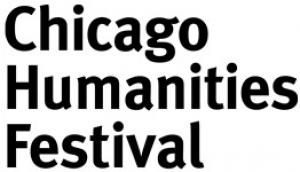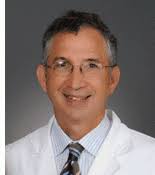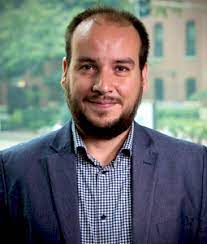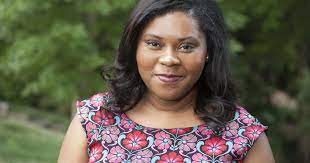
The pandemic has exacerbated inequalities that have always existed in our healthcare system. Barriers to care and higher mortality rates in communities of color stand in sharp contrast to the preferential treatment of wealthy white Americans. While it is clear that the status quo needs to change, how do we eliminate the gap in coverage and build a system that benefits everyone? Join CHF for a panel discussion about this pressing issue with David Ansell (Senior Vice President for Community Health Equity at Rush University Medical Center), Dr. Fernando De Maio (Director of Health Equity Research and Data Use in the Center for Health Equity at the American Medical Association), and Sharrelle Barber (Assistant Professor of Epidemiology and Biostatistics at Dornsife School of Public Health at Drexel University). This program is moderated by Marissa Evans (Staff Writer covering healthcare and race in California for The Los Angeles Times).
- Registered guests will receive details on how to access the event via email immediately upon registration, and receive email reminders closer to the event date.
- This program will be livestreamed on YouTube on May 19th at 7pm central time with a live Q+A, and registered guests will have a period of 7 days to enjoy the program if you can’t join the livestream.
- All CHF's virtual events have closed captions. Please reach out to us at access@chicagohumanities.org with any questions or to request additional accommodations.
- Please reach out to tickets@chicagohumanities.org with any further questions–we have a small staff and promise to reply as soon as we can!
David Ansell
 David Ansell, MD, MPH is the Michael E Kelly Presidential Professor of Internal Medicine and Senior Vice President/Associate Provost for Community Health Equity at Rush University Medical Center in Chicago. He is a 1978 graduate of SUNY Upstate Medical College. Ansell did his medical training at Cook County Hospital in Chicago. He spent 13 years at Cook County as an attending physician and ultimately was appointed Chief of the Division of General Internal Medicine at Cook County Hospital. From 1995 to 2005 Ansell was Chairman of Internal Medicine at Mount Sinai Chicago. He was recruited to Rush University Medical Center as its inaugural Chief Medical Officer in 2005, a position he held until 2015. Ansell’s research and advocacy focuses on eliminating health inequities. Ansell is the author of County: Life, Death and Politics at Chicago’s Public Hospital and The Death Gap: How Inequality Kills was published in 2017.
David Ansell, MD, MPH is the Michael E Kelly Presidential Professor of Internal Medicine and Senior Vice President/Associate Provost for Community Health Equity at Rush University Medical Center in Chicago. He is a 1978 graduate of SUNY Upstate Medical College. Ansell did his medical training at Cook County Hospital in Chicago. He spent 13 years at Cook County as an attending physician and ultimately was appointed Chief of the Division of General Internal Medicine at Cook County Hospital. From 1995 to 2005 Ansell was Chairman of Internal Medicine at Mount Sinai Chicago. He was recruited to Rush University Medical Center as its inaugural Chief Medical Officer in 2005, a position he held until 2015. Ansell’s research and advocacy focuses on eliminating health inequities. Ansell is the author of County: Life, Death and Politics at Chicago’s Public Hospital and The Death Gap: How Inequality Kills was published in 2017.
Sharrelle Barber
 Dr. Sharrelle Barber is a social epidemiologist whose research focuses on the intersection of "place, race, and health." Dr. Barber leverages state-of-the-art epidemiologic cohort studies to examine how neighborhood-level structural determinants of health such as concentrated economic disinvestment and racial residential segregation impact cardiometabolic risk factors and cardiovascular disease onset among Blacks in the Southern United States and Brazil. Her work is framed through a structural racism lens, grounded in interdisciplinary theories (e.g. Ecosocial Theory and Critical Race Theory) and employs various advanced methodological techniques including multilevel modeling and longitudinal data analyses. Through empirical evidence, her work seeks to document how racism becomes "embodied" through the neighborhood context and how this fundamental structural determinant of racial health inequities can be leveraged for transformative change through anti-racist policy initiatives. Dr. Barber’s empirical work and academic commentary has been published in leading academic journals including the Lancet Infectious Disease, the American Journal of Public Health, and Social Science and Medicine. Currently, Dr. Barber serves on the Jackson Heart Study Scientific Council and is co-chair of the Social Determinants of Health Working Group for the study. Dr. Barber is committed to using her scholarship to make the invisible, visible; mobilize data for action; and contribute to the transnational dialogue around racism and health inequities.
Dr. Sharrelle Barber is a social epidemiologist whose research focuses on the intersection of "place, race, and health." Dr. Barber leverages state-of-the-art epidemiologic cohort studies to examine how neighborhood-level structural determinants of health such as concentrated economic disinvestment and racial residential segregation impact cardiometabolic risk factors and cardiovascular disease onset among Blacks in the Southern United States and Brazil. Her work is framed through a structural racism lens, grounded in interdisciplinary theories (e.g. Ecosocial Theory and Critical Race Theory) and employs various advanced methodological techniques including multilevel modeling and longitudinal data analyses. Through empirical evidence, her work seeks to document how racism becomes "embodied" through the neighborhood context and how this fundamental structural determinant of racial health inequities can be leveraged for transformative change through anti-racist policy initiatives. Dr. Barber’s empirical work and academic commentary has been published in leading academic journals including the Lancet Infectious Disease, the American Journal of Public Health, and Social Science and Medicine. Currently, Dr. Barber serves on the Jackson Heart Study Scientific Council and is co-chair of the Social Determinants of Health Working Group for the study. Dr. Barber is committed to using her scholarship to make the invisible, visible; mobilize data for action; and contribute to the transnational dialogue around racism and health inequities.
Fernando De Maio
 Fernando De Maio, PhD, is the Director of Research and Data Use at the Center for Health Equity at the American Medical Association and Professor of Sociology at DePaul University. He was born in Buenos Aires, Argentina. He received a BA (Hons.) degree in Sociology and Economics from the University of Toronto, and his MA (Sociology and Health Studies) and PhD (Sociology) degrees from the University of Essex. His research and teaching interests lie primarily within medical sociology and social epidemiology, with a focus on the concept of structural violence. His work has been guided by the notion of 'radical statistics' – the idea that statistical analysis can be used to not just describe the world, but to change it. He is the author of Health & Social Theory (Palgrave Macmillan, 2010) and Global Health Inequities (Palgrave Macmillan, 2014), and co-editor of Latin American Perspectives on the Sociology of Health and Illness (Routledge, 2018), Community Health Equity: A Chicago Reader (University of Chicago Press, 2019), and Unequal Cities: Structural Racism and the Death Gap in America’s Largest Cities (Johns Hopkins University Press, 2021). He is a founding Co-Director of the DePaul – Rush Center for Community Health Equity. In 2019, he was a visiting fellow at the Sinai Urban Health Institute, and has received the Steve Whitman Research Award from Health and Medicine Policy Research Group.
Fernando De Maio, PhD, is the Director of Research and Data Use at the Center for Health Equity at the American Medical Association and Professor of Sociology at DePaul University. He was born in Buenos Aires, Argentina. He received a BA (Hons.) degree in Sociology and Economics from the University of Toronto, and his MA (Sociology and Health Studies) and PhD (Sociology) degrees from the University of Essex. His research and teaching interests lie primarily within medical sociology and social epidemiology, with a focus on the concept of structural violence. His work has been guided by the notion of 'radical statistics' – the idea that statistical analysis can be used to not just describe the world, but to change it. He is the author of Health & Social Theory (Palgrave Macmillan, 2010) and Global Health Inequities (Palgrave Macmillan, 2014), and co-editor of Latin American Perspectives on the Sociology of Health and Illness (Routledge, 2018), Community Health Equity: A Chicago Reader (University of Chicago Press, 2019), and Unequal Cities: Structural Racism and the Death Gap in America’s Largest Cities (Johns Hopkins University Press, 2021). He is a founding Co-Director of the DePaul – Rush Center for Community Health Equity. In 2019, he was a visiting fellow at the Sinai Urban Health Institute, and has received the Steve Whitman Research Award from Health and Medicine Policy Research Group.
Marissa Evans
 Marissa Evans covers healthcare and race in California for The Los Angeles Times. Before joining The Times in 2021, she worked for the Star Tribune in Minneapolis, where she covered housing, Black community trauma after George Floyd’s death, how communities of color have been affected by COVID-19 and how Minnesota allows private hospitals to seize tax refunds from consumers with unpaid medical bills. She also previously reported for the Texas Tribune, CQ Roll Call and Kaiser Health News. She won a 2018 Online News Assn. award for explanatory reporting for a project on Texas’s maternal mortality crisis. Her work has appeared in The Atlantic, Medium, Oprah Magazine and other outlets. Evans is also a trainer with the Ida B. Wells Society for Investigative Reporting, which aims to increase the ranks of journalists of color in the field of investigative reporting.
Marissa Evans covers healthcare and race in California for The Los Angeles Times. Before joining The Times in 2021, she worked for the Star Tribune in Minneapolis, where she covered housing, Black community trauma after George Floyd’s death, how communities of color have been affected by COVID-19 and how Minnesota allows private hospitals to seize tax refunds from consumers with unpaid medical bills. She also previously reported for the Texas Tribune, CQ Roll Call and Kaiser Health News. She won a 2018 Online News Assn. award for explanatory reporting for a project on Texas’s maternal mortality crisis. Her work has appeared in The Atlantic, Medium, Oprah Magazine and other outlets. Evans is also a trainer with the Ida B. Wells Society for Investigative Reporting, which aims to increase the ranks of journalists of color in the field of investigative reporting.
